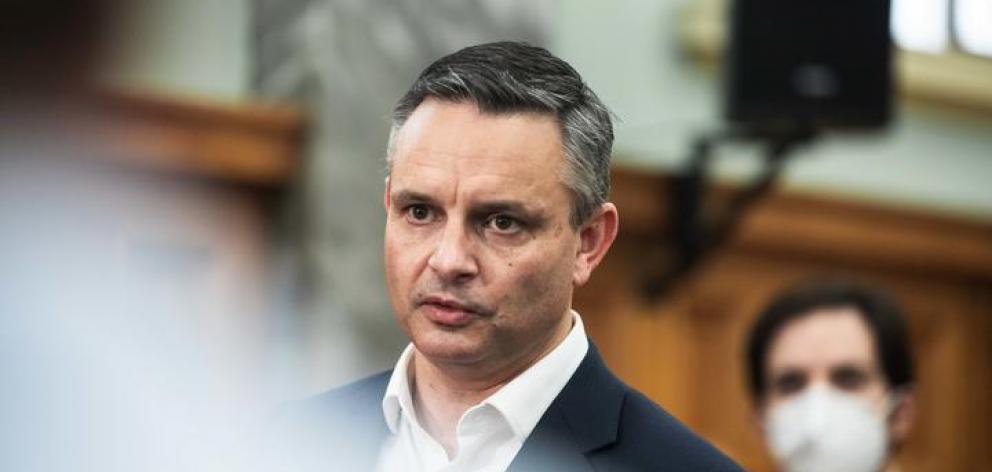
It includes looking at how central and local governments, the private sector including insurance, individuals and communities, and Māori could plan and manage impacts on the natural environment, homes and buildings, infrastructure, the economy, and social supports.
Climate Change Minister James Shaw released the plan for consultation this morning, saying events in just the last six months had highlighted the need for action to protect lives, homes, incomes, businesses and infrastructure.
"We have seen massive floods, such as those in Tairawhiti; storms, such as those experienced recently in Westport; fires in the Waituna wetlands in Southland; and droughts right across the country," he said.
"Central government does not bear all the costs. The consultation asks how best to share risks and costs between property and asset owners, insurers, banks and local government as well. It also asks for views on managed retreat and flood insurance, to ensure a joined-up approach to climate change adaptation."
Shaw said the best thing to protect against climate change was to reduce emissions, pointing ahead to the Government's first emissions reduction plan due out next month.
He urged all New Zealanders to make a submission. Consultation is open for a month, until June 4.
The plan includes three main focus areas, each with multiple actions:
Reform institutions to be fit for a changing climate
- Resource management system reforms
- Passing legislation to support "managed retreat" to reduce exposure to sea level rise
- Reforming the management of water infrastructure
- Modernising emergency management
- Reviewing the needs and responsibilities of local government
Supporting actions:
- Establishing a foundation for working with Māori on climate actions
- Setting a national direction through the National Planning Framework
- Implementing a national disaster resilience strategy
- Developing the emergency management workforce
- Establishing government oversight and coordination of the national adaptation plan
Provide data, information, tools and guidance to allow everyone to assess and reduce their own climate risks
- Providing access to climate data
- Setting up a national climate adaptation information portal
- Completing a case study on flood protection funding in Westport, exploring co-investment
- Publishing advice for planning, including for policy makers, businesses, councils, iwi/Māori, and industry sectors
Supporting actions:
- Completing the stocktake of datasets, showing gaps for investment
- Developing Future Pathways for research, science and innovation
- Improve using science, data and knowledge for informing emergency management
Other future proposals:
- Develop 3D coastal mapping with GNSS
- Implement a Ministry of Defence climate and security project
- Produce tools and guidance specific to mātauranga Māori
- Tools and guidance for monitoring the effectiveness of the adaptation plan
- A Ministry for the Environment programme for reviewing gaps in the adaptation plan
- A professional development programme focused on adaptation
- Tools and advice on the benefits of investing in climate-positive business and practices
Embed climate resilience across government strategies and policies
- Investing in the government's Climate Emergency Response Fund and Green Bonds programme
- Analysis of regulation in sectors like labour markets, financial markets and construction codes to ensure they remain fit for purpose
BusinessDesk founder and reporter Pattrick Smellie yesterday told RNZ's Nine to Noon programme there were two main concerns the Government needed to address.
"How to approach a region like Tairāwhiti - which over the last year or less seems to have had three major floods.
"If that's going to happen all the time how is that region going to cope with that fact, how's it going to change how the economy works, what's it going to mean for how roads are built, how rivers are contained around urban and places where people live - and places where people work, so farms and so forth.
"The other thing I think would be really interesting is how does the Government think about sea level rise as it relates to coastal property.
"Anyone who currently owns coastal property is able to insure it but over time if coastal property starts basically becoming just a bit too coastal - like maybe tidal property, or disappearing into the sea - obviously insurance companies are not going to insure that."
He said the question was the extent the Government would be willing to act as the insurer of last resort, and at what point coastal property would become too risky to sell.
However, he suggested some of the difficulties may not need government regulation because the insurance industry would naturally adapt itself.
"There was a time when the fear was that governments would allow genetic modification and all hell would break loose, but actually a lot of that problem was dealt with to some degree by the extent to which insurers would just say 'look we're just not prepared to cover some of the existential risks which are being raised here'.
"So you'd probably be able to insure a building for fire or a burglary but possibly not for inundation."












